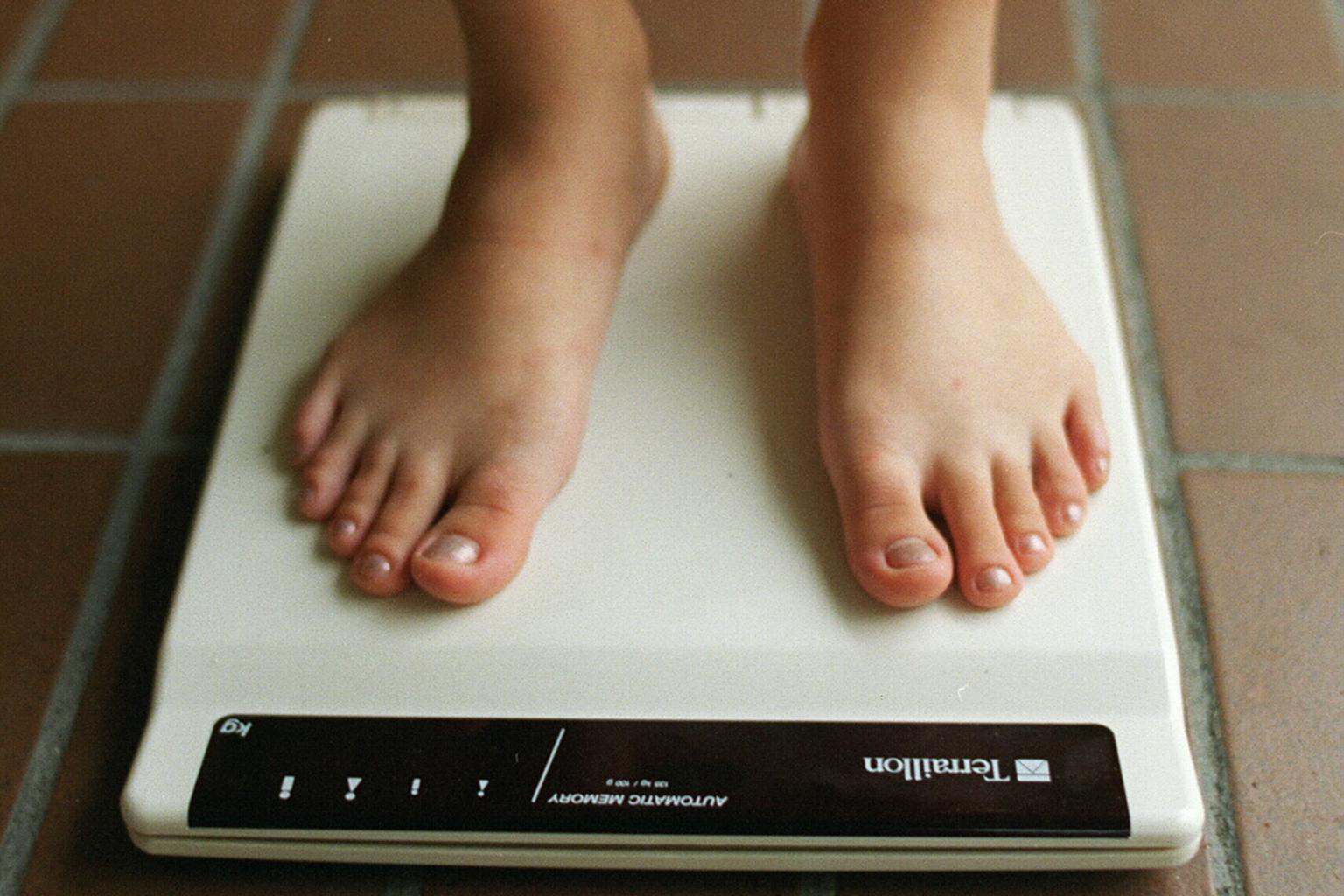Nearly one-third of Singaporeans gained weight during Covid-19 pandemic: Survey
Sign up now: Get ST's newsletters delivered to your inbox

The average increase in weight of those surveyed is around 5kg.
PHOTO: ST FILE
Follow topic:
SINGAPORE - Covid-19 has been a weighty affair in more ways than one, with almost one-third of Singaporeans saying that they have piled on the kilos during the pandemic.
"I used to do more physical training with friends but circuit breaker interrupted that routine," said university student X. Chia, who gained around 4kg over two and a half months.
A recent study by marketing research company Ipsos showed that 30 per cent of 500 respondents experienced an average increase of around 5kg during the pandemic.
And while many would point their fingers at how lifestyles have become more sedentary with many working from home, four in 10 reported that they are exercising more often.
And while many would point their fingers at how lifestyles have become more sedentary with many working from home, four in 10 reported that they are exercising more often.
For Mr Cameron Ng, 36, who leads a copy-editing team, the absence of work commutes has made it easier to carve out time to exercise.
"Also, once the gyms stopped operating during the circuit breaker period, I bought my own equipment so that I could work out at home. That also meant I couldn't give myself excuses not to work out," said Mr Ng, who lost 35kg over about four months.
More than half of those surveyed also said they were trying to lose weight but a majority of these - more than 70 per cent - added that this was unrelated to gaining weight during the pandemic.
"Also, once the gyms stopped operating during the circuit breaker period, I bought my own equipment so that I could work out at home. That also meant I couldn't give myself excuses not to work out," said Mr Ng, who lost 35kg over about four months.
More than half of those surveyed also said they were trying to lose weight but a majority of these - more than 70 per cent - added that this was unrelated to gaining weight during the pandemic.
Mr Chia, for instance, said he has been hitting the climbing gym after exercise facilities reopened last June. While he hasn't quite lost the extra pounds, he believes by now, the weight gain has turned into muscle gain.
The survey, which looked at how health choices have changed during the pandemic and involved 500 respondents aged from 21 to 74 between Oct 23 and Nov 6, found that more exercise was the most popular way to slim down. This was followed by reducing one's food intake and eating healthily without dieting.
The survey, which looked at how health choices have changed during the pandemic and involved 500 respondents aged from 21 to 74 between Oct 23 and Nov 6, found that more exercise was the most popular way to slim down. This was followed by reducing one's food intake and eating healthily without dieting.
However, these Singaporeans were least willing to give up meat and alcohol to lose weight.
Only 10 per cent said that they could abstain from meat and alcohol, while 65 per cent of them could cut down or forgo sugar.
Nevertheless, cheaper healthy food topped the list of 12 possible initiatives that companies and governments could introduce to help people shed the pounds.
The proposal was significantly ahead of others, with nearly half of the respondents opting for it.
This was followed by around 20 per cent hoping to see more green public spaces available for exercise and 15 per cent wishing for healthier ingredients in processed foods.
"When it comes to food, eating out is a common practice for Singaporeans... But healthy options with lower sugar, lower carbohydrates and less processed foods are still limited within a more affordable price range," said Ms Melanie Ng, director of public affairs at Ipsos in Singapore.
"Having access to cheaper healthy foods is likely to make most impact to Singaporeans trying to achieve their health goals."
University student Ryan Tan, 23, who gained weight during the circuit breaker, agreed. "I know that fried and oily food is unhealthy but it's hard to make a lasting change to my diet since these options are convenient and affordable. I don't understand why you have to pay a premium for healthy food."

